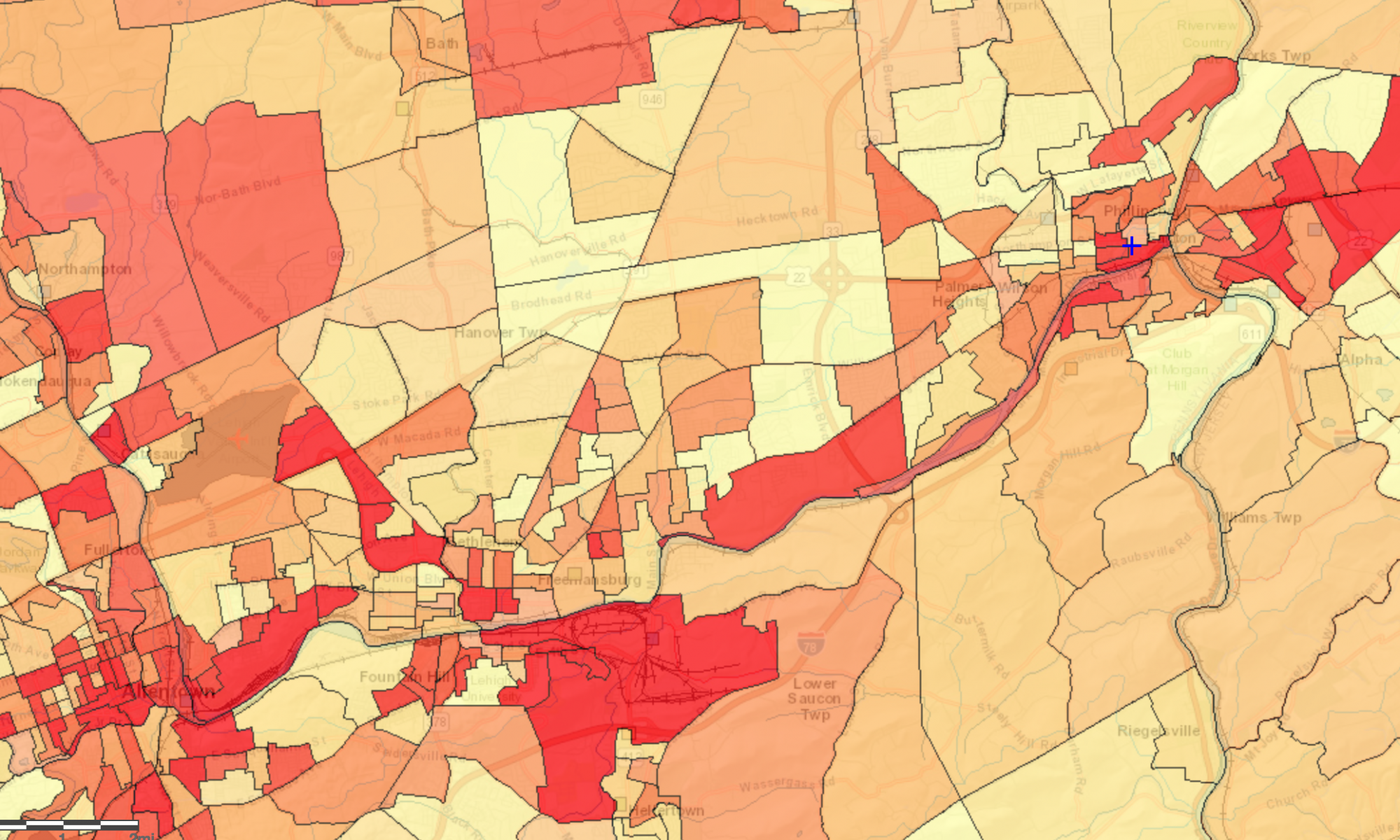
Andrea Armstrong received her Ph.D. in Sociology from Utah State University. She is currently an Assistant Professor at Lafayette College in the Environmental Science and Engineering Department, and describes herself as “an environmental social scientist, with a focus on local water policy and management”. Her perspective as an environmental social scientist is valuable in understanding how energy projects like PennEast may affect both the local environment and community.
LEJI: Could you explain your role in any environmental organizations you personally work within the Lehigh Valley area?
Dr. Armstrong: I have worked with the Nurture Nature Center in terms of my EVST course. I worked with [the] Nurture Nature Center and [the] Easton Environmental Advisory Council on something we called the Easton recycling initiative, last fall. The question we had for the class was: How can we make Easton’s recycling program easier to participate in? It was fun. We developed an infographic and a messaging campaign for the initiative. We worked on stickers, education, and elements.
LEJI: So, how knowledgeable are you on the PennEast Pipeline?
Dr. Armstrong: A little bit; that’s not something I’m an expert on, by any means. But I know the general route of it, [and] citizens’ concerns about it that I have read up on.
LEJI: In your limited experience, what is the biggest issue with the PennEast pipeline, in your opinion?
Dr. Armstrong: There are many issues with the PennEast pipeline project, but one that is pretty obvious is the problem with eminent domain. With the construction of pipelines in Pennsylvania and beyond for fracking purposes, this is an instance where private companies are funding and will profit from the construction of the pipeline. But they are acquiring the land through the process of eminent domain, which implies that there is a public good or a public outcome of the newly appropriated use of the land when in fact, it will be the people living around these pipelines and experiencing the risks of these pipelines. […] so that is a major issue at the construction point of the pipeline. After that comes the issue of risk and the sustained risk that having these technologies on our landscape pose when cutting down forest habitats and fragmenting continuous landscapes, when going through rivers and wetlands which are essential for aquatic species. Just the sheer fact that we are [moving] hundreds of thousands of highly flammable substances across the landscape, across people’s backyards, across traffic, and that given the track record of fracking in the United States–it doesn’t bode well in my opinion.
LEJI: Do you think that energy transportation or extraction proposals like PennEast may impact the local economic environment, either positively or negatively?
Dr. Armstrong: It is already influencing land value and for those folks who are experiencing the eminent domain process right now, there are economic impacts to those land owners. I think that anytime a pipeline crosses a waterway, especially one like the Lehigh [River], which is used for drinking, waste, and recreation, […] there is definitely room for economic harm. I’m going to be very clear with you. Economic harm, in my opinion, comes from a far distance to the actual personal and environmental injury that takes place. If economic harm were to happen, the harm experienced by individuals communities, and the environment have to first happen, and then be translated into dollars. So I, from an intellectual, emotional, and rational standpoint, think about that first step before I ever turn those impacts–positive or negative–into dollars.
LEJI: So your first concern is environmental damage, before economic damage?
Dr. Armstrong: Environmental and social damage. […] The actual mental disruption that someone has when their home properties are split in two. The connections they had with their backyards are now gone because a pipeline is put in place. That has significant emotional and cognitive value to it, far apart from turning that into money–long before we try to put a price on what that actual cost is.
LEJI: What roles can forums play in alleviating issues caused by energy projects like PennEast?
Dr. Armstrong: Forums? Like public forums?
LEJI: Yes.
Dr. Armstrong: I think they are a way to encourage a knowledge base. A public forum is a way for experts, or be it trained professionals, representatives of companies, of government, of people going through these experiences themselves and going through eminent domain and having their way making sense of their land disrupted […] to learn from one another from those different perspectives. They are also a way of having a group therapy about this change that is happening. From each of those perspectives bring a set of facts, information, or perception. […] It is much more than information exchange. If it was an information exchange, we could type up a report and mail it to someone and that would be the equivalent of having a forum. You know forums are not that. They are much richer. They are much more based on seeing who else is experiencing impacts, and who else is going through something similar that you and your family [or] community are going through. So I think it lends a greater sense of community and a greater sense of belonging in relation to people going through this problem or experience.
LEJI: If you had full power over the proposal, would you change anything about the PennEast pipeline?
Dr. Armstrong: I would take the funds that are being dedicated by the government and the private sector to construct the PennEast pipeline, and use [them] to update renewable energy infrastructure and to transform the energy grid as it exists, using technologies that we have, rather than implementing new infrastructure that [is] disruptive to social and natural environments.
